Why the Midlands is still Brexit Central
- Published
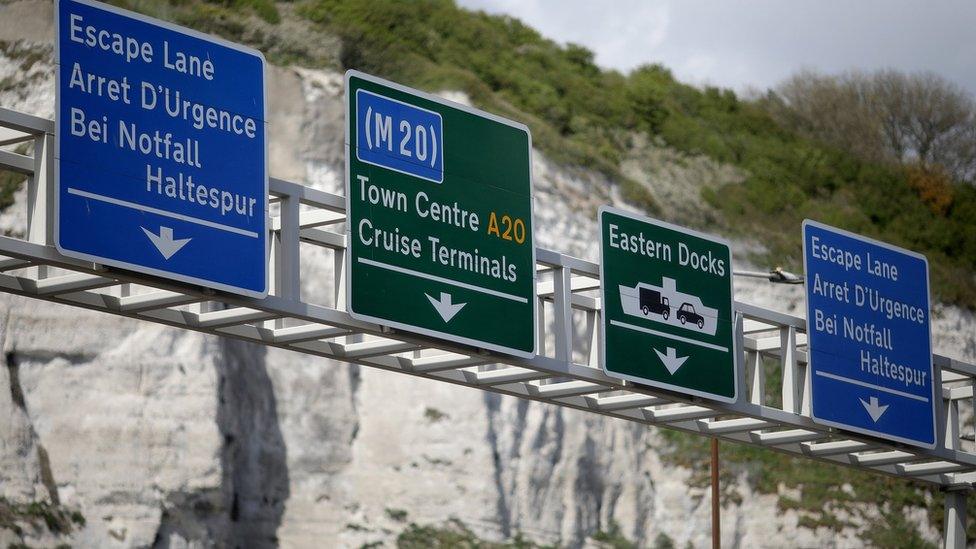
How to avoid customs checks has become a key Brexit debating point
Fact or Friction?
Bombarded by the Brexit barrage of claims and counter-claims, it can seem increasingly difficult to find reliable information in amongst all the crazy paving of exaggeration, suspicion, innuendo, apocalyptic imagery and sometimes, yes, fake news and alternative facts.
But the Conservative Metro Mayor of the West Midlands, Andy Street, has done his level best to lace his article in "The Times" on Tuesday 15 May 2018, line-by-line, paragraph-by-paragraph, with a succession of reality checks.
"The car industry employs more than 50,000 people in the West Midlands." This leads to his warning that many thousands of them would be lost if Britain gets the customs deal wrong.
"About 25% of Jaguar Land Rover's finished cars go to Europe, but well over half are sold outside the EU."
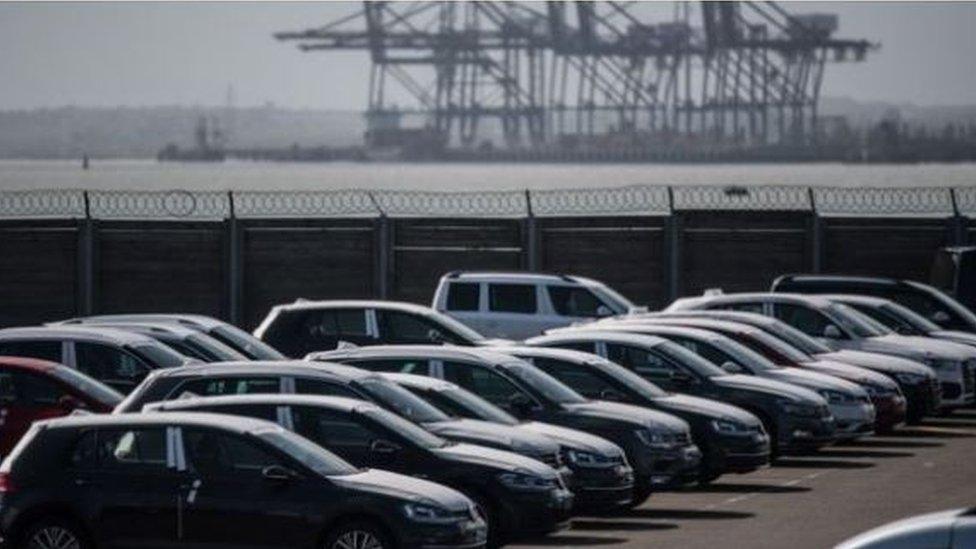
EU manufacturers deliver 81% of the cars imported by the UK
"Nearly 40% of Jaguar Land Rover's global suppliers are based in mainland Europe."
From here he develops his argument that the ability to send these parts to and fro across the Channel is vital. 'Just-in-time delivery' means "there are no warehouses full of exhausts waiting to be fitted" at the Range Rover production line in Solihull.
Finally comes his punch line.
"Let's listen to what businesses in the West Midlands are telling us, and make sure the only friction in the car industry after Brexit is more British-made cars driving off the forecourts around the world."
Ah yes, "friction".
Suddenly, "friction" or "frictionless" are the big Brexit buzz words.
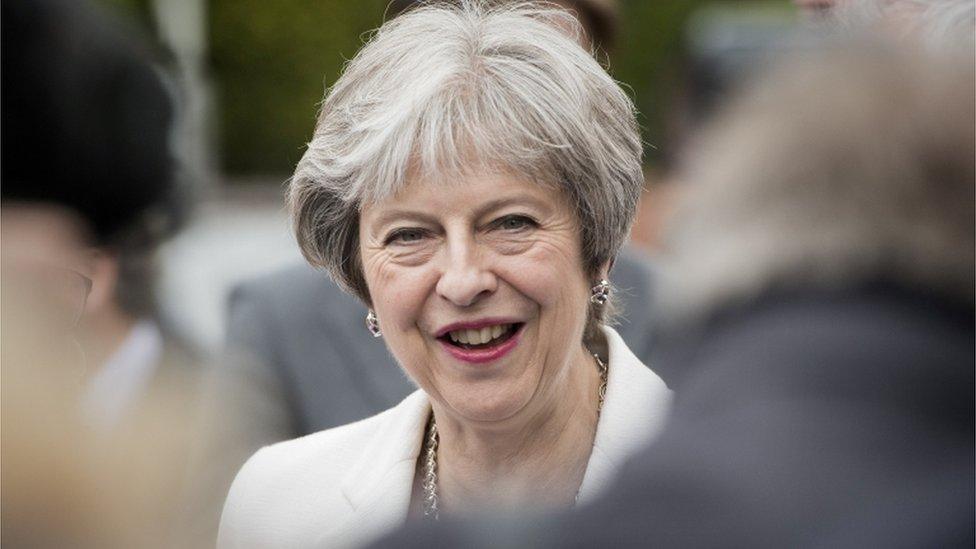
Prime Minister Theresa May speaks to Conservative party supporters as she arrives at Sedgley Conservative Club in Dudley
When Theresa May came to Dudley during last month's local election campaign, speculation had been mounting that she was about to backtrack on her commitment to pull Britain out of the EU Customs Union; partly in order to ease some of the tensions within her own party but also to placate leading businesses, including Jaguar Land Rover themselves.
When I caught up with her at Boss Designs, a local office furniture manufacturer whose global operations include a significant presence in Germany, she told me in no uncertain terms that she would not be softening her line.
"Coming out of the Customs Union means that we will be free to have those deals which suit the UK," she said.
"But I also recognise the importance to business of this being able to have a frictionless a border as possible into the EU."
Yes, here we go, "frictionless" again!
Midlands are so central
And where did Jeremy Corbyn choose for his keynote speech on the self-same subject earlier this year?
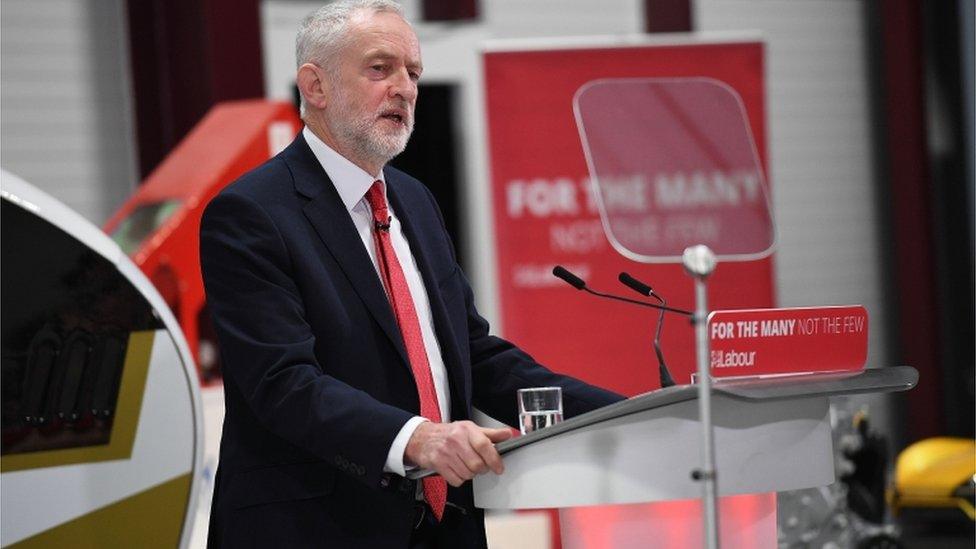
Labour leader Jeremy Corbyn makes a keynote speech as he sets out Labour's position on Brexit, at the National Transport Design Centre
The West Midlands of course.
In Coventry University's ultra hi-tec National Transport Design Centre he told us a Labour Government "would seek to negotiate a new, comprehensive UK-EU customs union."
So what exactly is the difference between 'the' Customs Union, (note the Upper Case) and "a" customs union, which remains to this day just about as indefinite an article as it was when he coined the expression in February.
This is not just the defining issue for our economic prospects.
It could also goes to the heart of our politics here in Britain's electoral killing fields.
Part of Theresa May's thinking when I talked to her in Dudley may have been that sustaining a tough line on exiting the Customs Union would play well with Black Country voters who overwhelmingly supported Leave in the referendum two years ago.
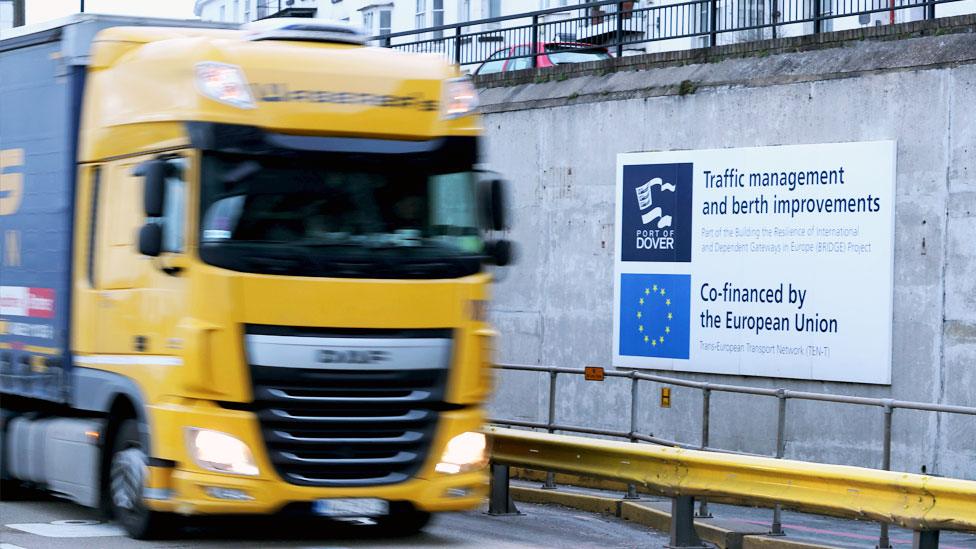
She appears to have been proved right on that calculation at least, as my two most recent posts point out. My earlier blogs have also questioned whether Jeremy Corbyn's increasingly EU-friendly messaging might play less well in those predominantly Leave-supporting towns in our part of the country than it does among his supporters in Islington.
Andy Street himself has plenty riding on all this. When Britain formally leaves the EU next March, the West Midlands second mayoral election will be just over a year away. Will he stand again? Or does he envisage his political destiny carrying him to Westminster?
So far he's keeping us guessing.
Either way, it's in his interests to help Theresa May succeed in her job, as it is for her to help him in his.
Brexit is just about as central to the Midlands as the Midlands are to Brexit.